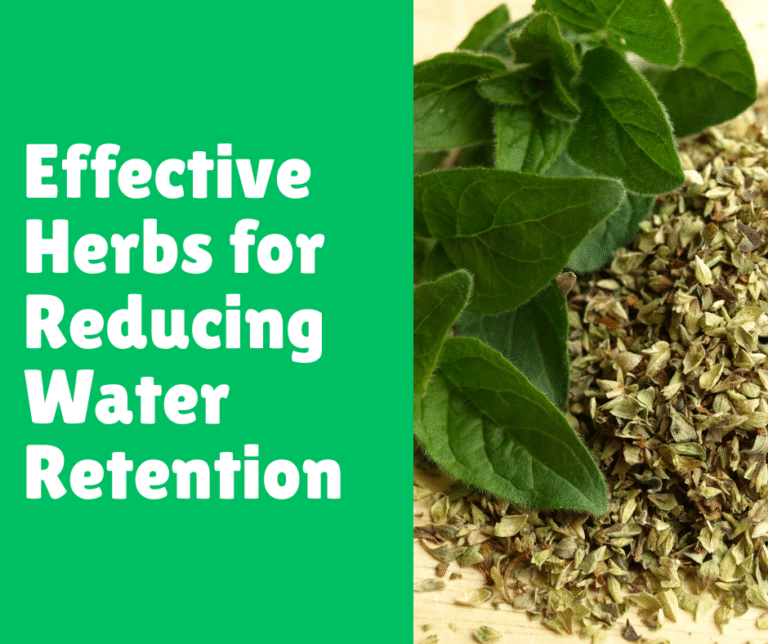Herbal Remedies to Soothe and Relieve Sinus Coughs Naturally
Post Disclaimer
Content on this site is for educational use only and not a substitute for medical advice. Herbal remedies are based on traditional knowledge and not medical recommendations. Please consult a healthcare professional before trying any herb. We do not assume responsibility for any outcomes or adverse effects resulting from the use of information provided here.
Sinus coughs are one of the most frustrating health issues. Whether it’s the constant tickle in the throat, the post-nasal drip, or the chest congestion, sinus-related coughs can be a real nuisance.
If you’ve been battling a sinus cough and are tired of relying on over-the-counter medication, you’re not alone. Many people are turning to herbal remedies for a more natural approach to ease their symptoms.
Herbal remedies for sinus coughs have been around for centuries, used by various cultures to treat respiratory issues. These remedies often work by addressing the root causes of sinus issues, such as inflammation, infection, or irritation.
Unlike pharmaceutical solutions, herbal remedies typically come with fewer side effects and can be a gentler option for many people.
In this post, I’ll guide you through the best herbal remedies for sinus coughs, explain how they work, and provide you with step-by-step instructions for making and using them.
I’ll also include a table of remedies, common mistakes to avoid, and some of my personal insights that you might find helpful.
The Science Behind Sinus Coughs
Before jumping into herbal remedies, it’s helpful to understand why sinus coughs occur. Sinusitis, or inflammation of the sinuses, is often the culprit.
When the sinuses are inflamed or infected, mucus production increases, leading to the infamous post-nasal drip, which can trigger coughing. Sometimes, a sinus infection may cause a more severe cough, which lingers and becomes bothersome.
Sinus Cough Symptoms:
- Thick mucus dripping down the back of the throat
- Sore throat
- Hoarseness
- Nasal congestion
- Fatigue
- Pressure or pain around the eyes and forehead
While sinus infections typically require medical attention, herbal remedies can help soothe the symptoms and even speed up recovery when combined with proper care. These remedies target inflammation, reduce mucus buildup, and support the immune system.
The Best Herbal Remedies for Sinus Coughs
Now that we understand what a sinus cough is, let’s take a look at the best herbal remedies to help ease the symptoms and support recovery.
The following herbs are known for their anti-inflammatory, antibacterial, and soothing properties, making them ideal for treating sinus coughs.
1. Eucalyptus
Eucalyptus is one of the most popular and effective herbs for sinus congestion. It has powerful anti-inflammatory properties that help reduce swelling in the sinuses and can provide quick relief from the tightness and pressure that come with a sinus cough.
How to Use:
- Steam Inhalation: Add a few drops of eucalyptus essential oil to a bowl of steaming hot water. Place a towel over your head and lean over the bowl, inhaling the steam for 5–10 minutes.
- Eucalyptus Tea: Add a small amount of eucalyptus leaf to hot water and steep for 5–10 minutes. Drink twice daily to help loosen mucus and ease coughing.
Why It Works:
Eucalyptus contains cineole, an active compound known to fight inflammation and improve respiratory function. It also acts as an expectorant, helping to clear mucus from the airways.
2. Peppermint
Peppermint is a well-known herb for soothing coughs and clearing the respiratory tract. It contains menthol, which acts as a natural decongestant and helps reduce the severity of sinus-related coughs.
How to Use:
- Peppermint Tea: Steep fresh or dried peppermint leaves in hot water for about 10 minutes. Drink 2–3 cups a day to calm the throat and reduce inflammation.
- Peppermint Oil Inhalation: Add a few drops of peppermint oil to a diffuser or steam bowl and inhale the vapors. This can help open up the sinuses and reduce coughing.
Why It Works:
Menthol in peppermint has a cooling effect that can help soothe the throat and clear the sinuses, making it easier to breathe and reduce coughing.
3. Ginger
Ginger is another powerful herb that’s been used for centuries to treat respiratory ailments, including sinus coughs. It has strong anti-inflammatory properties and can help boost circulation to promote healing.
How to Use:
- Ginger Tea: Boil fresh ginger slices in water for 10 minutes. Add honey and lemon to taste. Drink several cups throughout the day.
- Ginger Compress: Grate fresh ginger and place it in a cloth, applying it to your chest or throat for a natural soothing effect.
Why It Works:
Ginger contains compounds like gingerol, which have anti-inflammatory and antimicrobial effects, helping to reduce sinus inflammation and kill bacteria that might be contributing to your cough.
4. Thyme
Thyme is another herb that works wonders for respiratory health. It has antimicrobial properties that help fight infections and reduce the inflammation that often accompanies sinus issues.
How to Use:
- Thyme Tea: Steep fresh or dried thyme leaves in hot water for 5–10 minutes. Drink 1–2 cups per day for maximum benefit.
- Thyme Steam: Add a few sprigs of thyme to a bowl of boiling water. Inhale the steam to help clear your sinuses and soothe a cough.
Why It Works:
Thyme contains thymol, a compound with potent antiseptic and anti-inflammatory properties, which makes it effective in treating sinus infections and relieving coughs.
5. Licorice Root
Licorice root has long been used in traditional medicine for treating coughs and colds. It has soothing properties that can calm irritated throats and reduce the severity of coughing.
How to Use:
- Licorice Root Tea: Boil a few slices of dried licorice root in water for 10 minutes. Drink 1–2 cups daily.
- Licorice Root Syrup: You can also find licorice root syrup in health stores. Follow the instructions on the packaging for dosing.
Why It Works:
Licorice root contains glycyrrhizin, which helps soothe the throat and reduce inflammation in the respiratory tract. It also acts as a mild expectorant, making it easier to clear mucus.
Herbal Remedies for Sinus Coughs: A Quick Guide
Here’s a quick overview of the herbal remedies discussed above, in a simple table format.
| Herb | Key Benefits | How to Use |
| Eucalyptus | Anti-inflammatory, expectorant, decongestant | Steam inhalation, eucalyptus tea |
| Peppermint | Cooling effect, reduces coughing and congestion | Peppermint tea, oil inhalation |
| Ginger | Anti-inflammatory, boosts circulation | Ginger tea, ginger compress |
| Thyme | Antimicrobial, reduces inflammation | Thyme tea, thyme steam inhalation |
| Licorice Root | Soothes the throat, mild expectorant | Licorice root tea, licorice syrup |
Step-by-Step Instructions for Creating an Herbal Remedy Kit
If you want to take a more holistic approach to treating your sinus cough, I recommend creating an herbal remedy kit that includes several of these herbs. Here’s how you can do it:
- Gather Your Ingredients:
- Fresh or dried eucalyptus, peppermint, ginger, thyme, and licorice root.
- A diffuser (for essential oils), steam inhalation bowl, or teapot.
- Honey, lemon, and other natural additives to enhance taste and effectiveness.
- Create Your Remedies:
- Prepare herbal teas using the instructions above. You can combine herbs like peppermint and ginger for a more powerful effect.
- Set up a steam inhalation station in your bathroom with a few drops of eucalyptus or peppermint oil in hot water.
- For quick relief, keep a small container of licorice root syrup on hand.
- Use Regularly:
- Consistency is key when using herbal remedies. Drink your herbal teas daily, inhale steam, and apply compresses as needed.
Common Mistakes to Avoid
While herbal remedies are natural and generally safe, there are a few common mistakes to avoid:
Overusing Herbs: Just because something is natural doesn’t mean it’s safe in excess. Stick to recommended dosages and be mindful of any reactions your body may have.
Ignoring Other Treatments: Herbs are helpful, but they might not be enough if you have a severe sinus infection. Always consult a healthcare provider if symptoms persist for more than a week.
Not Giving Time to Work: Herbal remedies are gentle and may take time to show results. Be patient and consistent.
Conclusion
Herbal remedies offer a natural, soothing way to deal with sinus coughs. By incorporating herbs like eucalyptus, peppermint, ginger, thyme, and licorice root into your routine, you can alleviate symptoms and potentially accelerate your recovery.
Remember that everyone’s body reacts differently, so what works for one person may not be as effective for another. Don’t hesitate to experiment and see what works best for you. And, as always, if you’re dealing with a severe or chronic sinus infection, it’s a good idea to consult a healthcare professional.
- Herbal remedies can be a natural and effective way to manage sinus coughs.
- Eucalyptus, peppermint, ginger, thyme, and licorice root are all excellent options.
- Consistency is key, and patience is required as these remedies take time to work.
If you’ve tried any of these remedies or have others that work for you, feel free to share your experiences in the comments below. I’d love to hear from you!
If you found this post helpful, don’t forget to share it with friends who might be struggling with sinus issues. And if you have any questions or additional tips, leave a comment! Let’s help each other breathe easier.
FAQs
How long does it take for herbal remedies to work for a sinus cough?
Herbal remedies typically take a few days to a week to show noticeable results. It’s important to be consistent with your treatments.
Can I use herbal remedies alongside over-the-counter medications?
Yes, but always check with your doctor first, especially if you’re on other medications, to avoid any potential interactions.
Are there any side effects of herbal remedies for sinus coughs?
Most herbs used for sinus coughs are safe when used in moderation. However, if you have allergies to any of the herbs listed, avoid using them.








